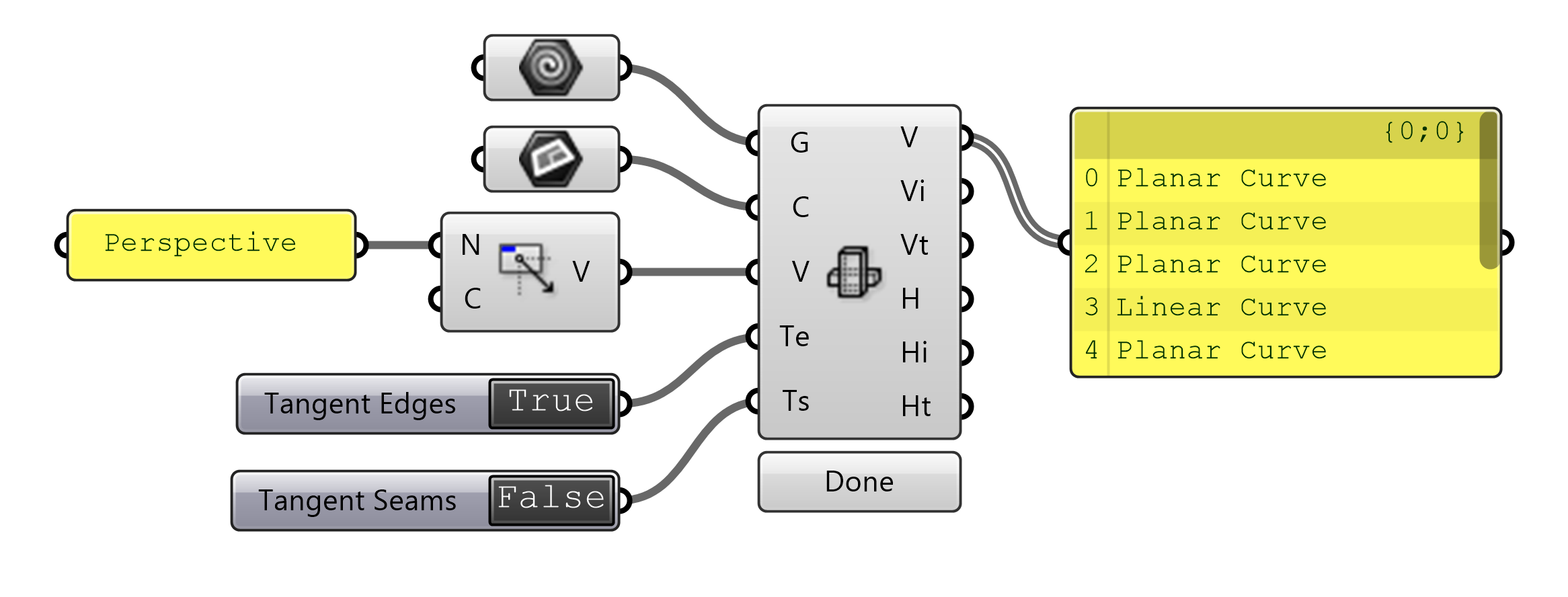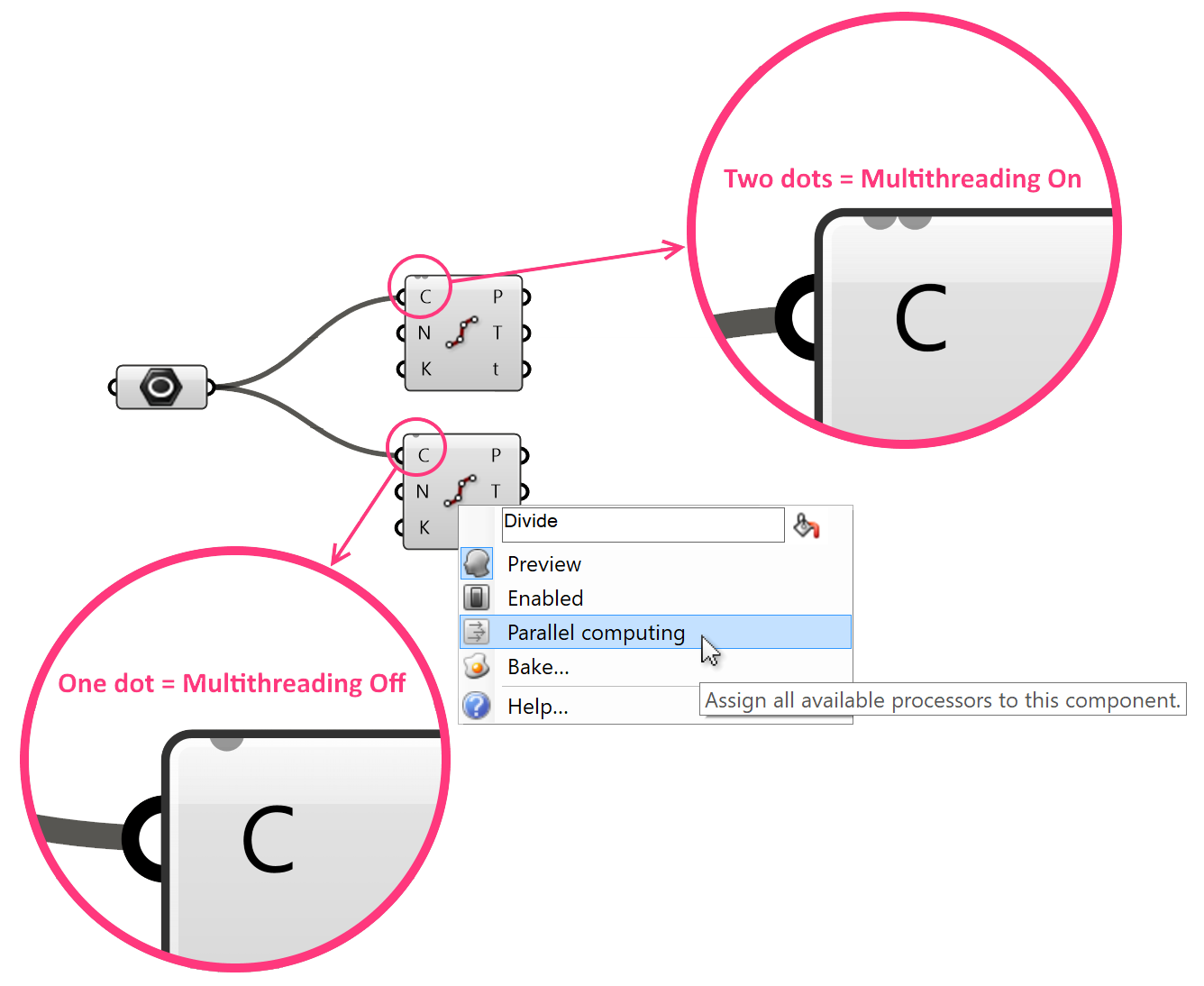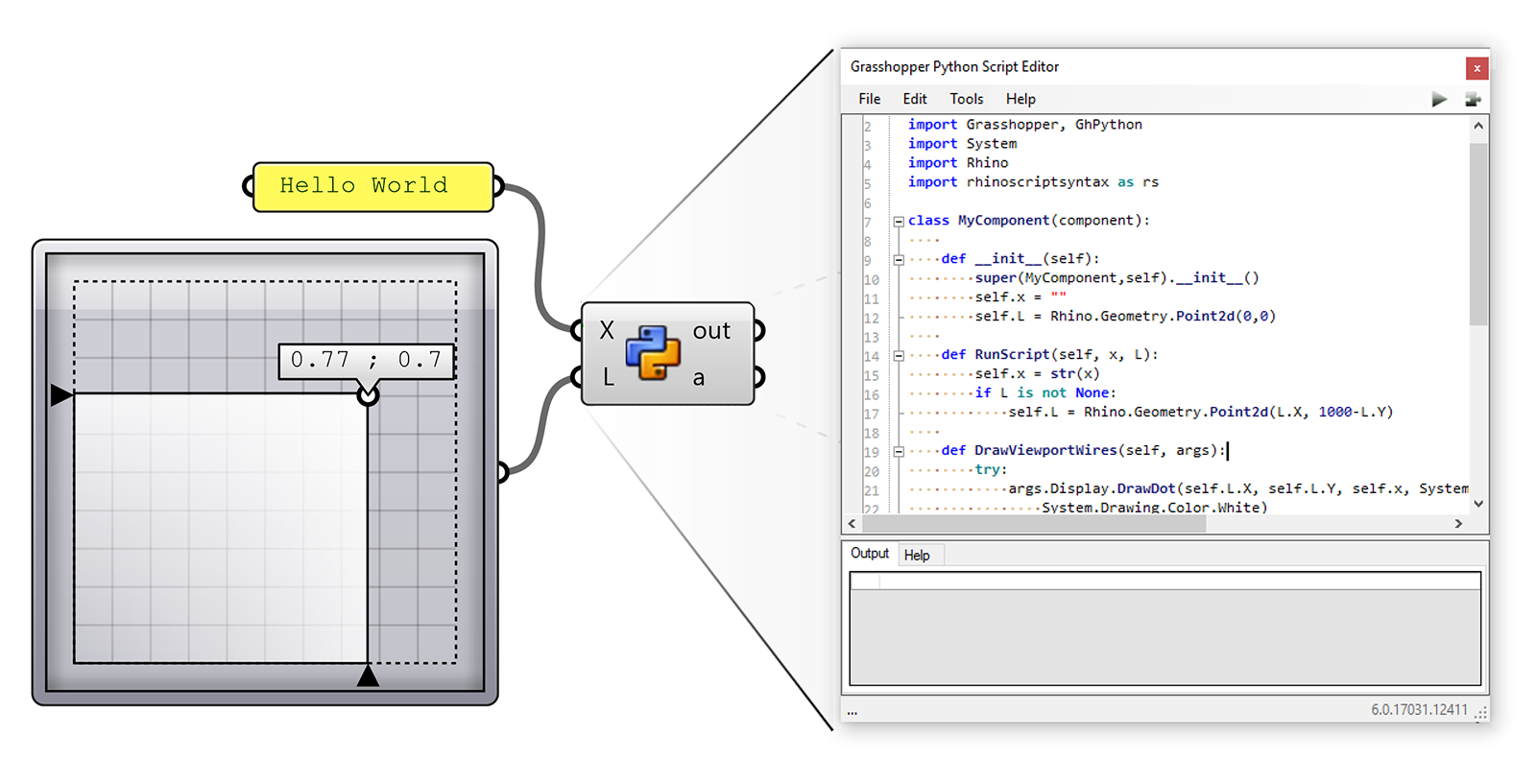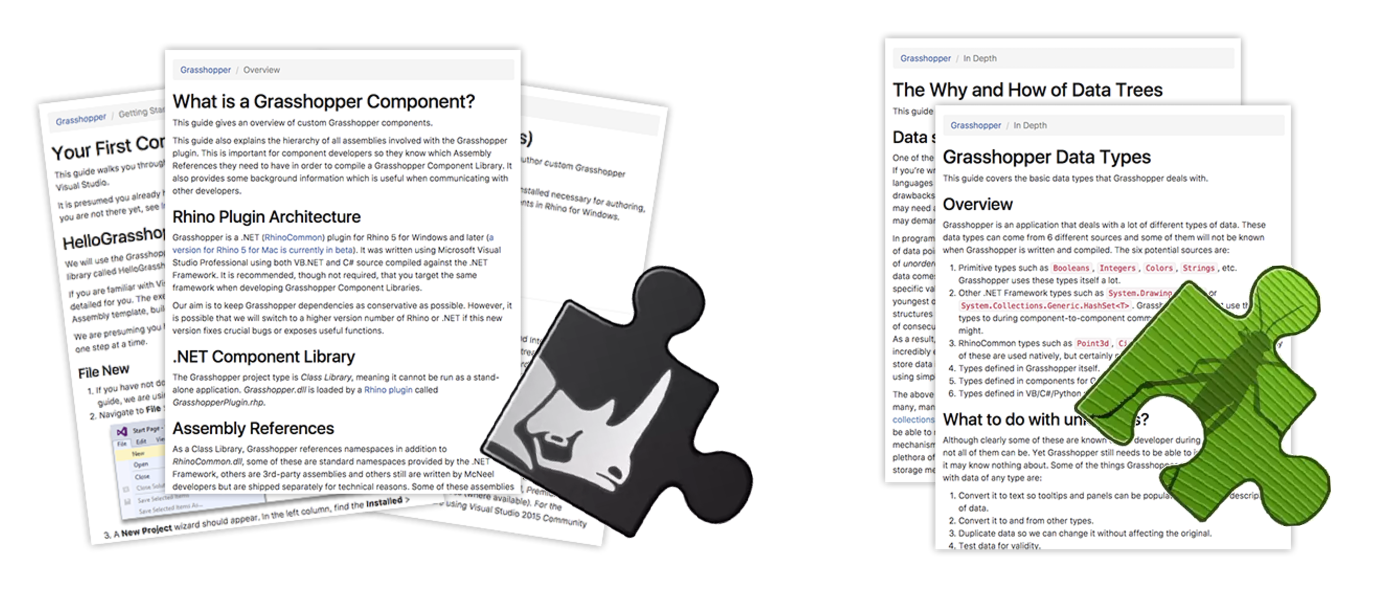Grasshopper - New in Rhino 6
Overview
The long wait is over: Rhino 6 includes Grasshopper. Used in some of the most ambitious design projects of the past decade, Grasshopper, like Rhino, has become a robust development platform. Grasshopper provides the foundation for many third-party components ranging from environmental analysis to robotic control. The Grasshopper bundled with Rhino 6 is the same Grasshopper you have been using, plus many enhancements.
Same ol' Grasshopper ...only better!
The Grasshopper in Rhino 6 is the same Grasshopper we've been busy developing for years so it should be familiar. That said, it does have many new features and enhancements that were not in the long-lived beta.
One Install
Grasshopper installs with Rhino 6. Updates and bug fixes come in regular service releases.
Familiar
If you have been a user for years, you should feel right at home in the Grasshopper in Rhino 6.

High DPI
High DPI displays are now supported.

Compatible
The Grasshopper in Rhino 6 is compatible with existing components.

New Components
Including Make2D, Symbol Display, Bend, Flow, Maelstrom, Splop, Splorph, Stretch, Taper, Twist.

Kangaroo
Kangaroo - the interactive dynamic relaxation solver/physics engine - is now included.
Multi-Threaded Components
Some components now
solve much faster using parallel computing.

GhPython
GhPython is also included. It features its own GHA compiler and a major node-in-code speed up.

An Easy Target
Grasshopper is now a stable development target: your components continue to work with each minor Grasshopper update.
Also, developing Grasshopper components using RhinoCommon exposes more Rhino core-functionality from within Grasshopper.
Developer documentation
is online with
guides
and API
references.

And More
 As always, there are
many bug fixes.
As always, there are
many bug fixes.
Video credits: Barkow Leibinger, Alvaro Soto, Tanzir Ahmed, Yong Ju Lee, Andrew Kudless, Hisashi Imai, Wieland Schmidt, Sameep Padora, GT2P, Mårten Nettelbladt, LMNts, Jacek Jaskólski, Klemens Sitzmann, Michael Pryor, Peter Graves & Daniel Piker

